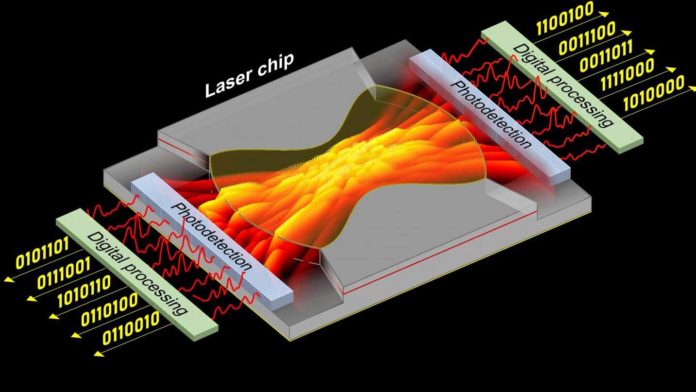Random numbers are used for various purposes: generating data encryption keys and one-time passwords (OTPs) in everyday processes to tighten security. Currently, computers are used to generate random numbers. The approach is cheap and effective. However, they are vulnerable to attacks, as hackers could predict future number sequences if they discover the algorithm used to generate the numbers.
Now, scientists from Nanyang Technological University, Singapore (NTU Singapore), Yale University, and Trinity College Dublin have developed a system that can generate random numbers over a hundred times faster than current technologies.
The system uses a laser that is about one millimeter long. The laser with a particular hourglass-shaped cavity generates random patterns formed by light rays reflecting and interacting with each other within the cavity.
By reading the patterns, the system generates many series of random numbers at the same time.
Scientists found that the system generates unique number sequences, i.e., no two number sequences generated using the system were the same. The laser that scientists used is also energy efficient and can be operated with any household power socket. It requires just one-ampere (1A) current.
Another benefit of this new system is that it can generate about 250 terabytes of random bits per second. It means the system is a hundred times faster than current computer-based random number generators.

Dr. Zeng Yongquan, a Research Fellow from NTU’s School of Physical and Mathematical Sciences, who co-designed the laser system, said: “Our system surpasses current random number generators, as the method can simultaneously generate many more random sequences of information at an even faster rate.”
Scientists are now looking forward to making this technology ready for practical use. They are planning to incorporate laser into a compact chip that enables the random numbers generated to be fed directly into a computer.
Journal Reference:
- Kyungduk Kim et al. Massively parallel ultrafast random bit generation with a chip-scale laser. DOI: 10.1126/science.abc2666
